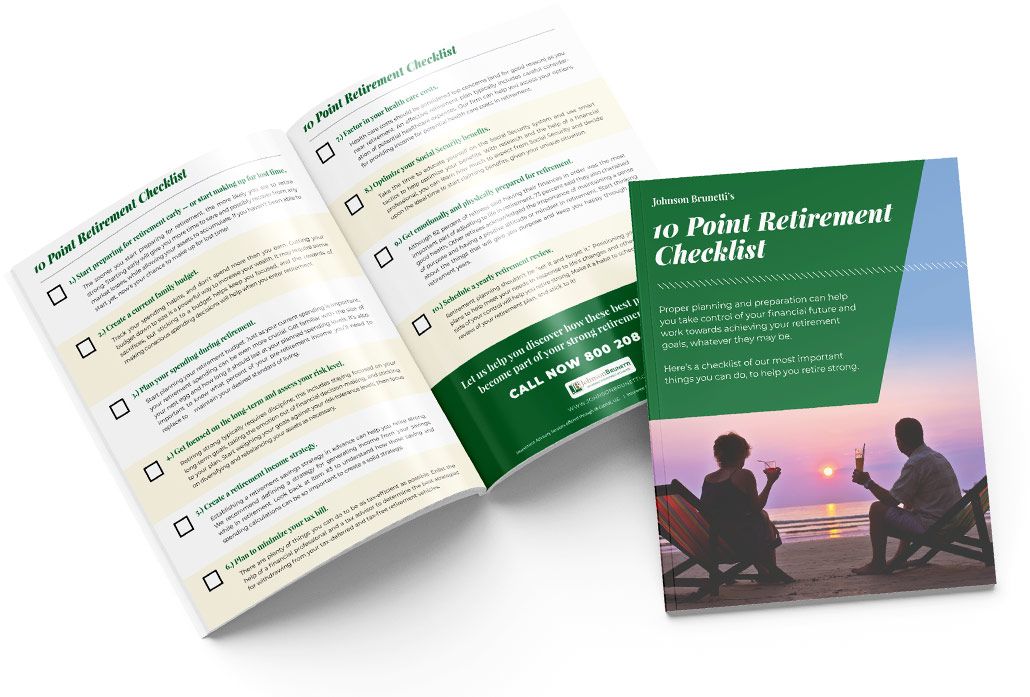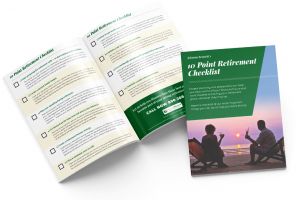When Should I Consider Borrowing Against My Assets?
Have your question answered on the Money Wisdom Question Series!
Welcome back to the Money Wisdom Question Series. Today’s question is, when would it be beneficial to borrow against my assets? While there are ways to borrow against assets such as a vehicle, we’re going to focus on three main asset considerations.
Join Jake Doser, CFP®, CPWA® as he takes a closer look at the pros and cons of borrowing against your home, your 401(k), and your investments.
Borrowing Against Your Home
Borrowing against your home is what most people think of when it comes to asset-based lending. While you may be under the impression that it’s a significant burden to carry a mortgage into retirement, it can be risky to have most of your wealth tied into your home equity while lacking readily available cash. Without enough assets in the bank and in investments, you may find yourself struggling to facilitate an emergency fund or an unexpected expense.
There are instances when borrowing against your home in exchange for maintaining liquidity is beneficial. Certainly, borrowing and when interest rates are high is not favorable. But when interest rates are lower, your investments could very easily outperform the interest that you’re paying, and in that environment, it may be advantageous to borrow against your house.
Borrowing From Your 401(k)
While it’s less common to borrow against a retirement account like a 401(k), in an emergency, it is certainly worth considering. Depending on your employer’s plan, you can usually borrow up to 50% of the value of your 401(k). However, in this scenario, you’ll be paying interest and taking out the opportunity earnings of your plan. You don’t want to limit yourself by avoiding market-exposed growth over the long term. Oftentimes, it may be better to borrow against a 401(k) rather than getting yourself into credit card debt or taking out a personal loan due to interest rates. But outside of those circumstances, it is best to avoid doing so if you are able.
Borrowing Against Investments
Referred to as margin borrowing, the niche practice of borrowing against your investments can be a dangerous proposition. If your platform allows it, you will not only be paying interest to the financial institution, but also, if your investments suddenly drop in value, you could find yourself upside down. A margin call will then be issued by the institution informing you that your borrowing limit has been reduced, and you must pay up immediately. Our best recommendation is to almost never consider borrowing against your investments. Of the three assets that we’ve covered, this is the least favorable option.
Understand Your Options
Borrowing against your assets can come with several risks. It’s important to make sure you understand your options and have a solid financial plan in place. Working with a financial advisor can help take the uncertainty out of your decision. Together, you’ll create a strategy that aligns with your unique financial situation and long-term goals.
Download Now
10-Point Retirement Checklist
Here’s a checklist of our most important things you can do, to help you retire strong.

Information presented in our podcasts is considered current as of the created date. Over time, some information presented may become stale. We recommend you consult with your Financial Professional before making any changes based on information contained here.
Johnson Brunetti is a marketing name for the businesses of JB Capital and JN Financial.
Investment Advisory Services offered through JB Capital, LLC. Insurance Products offered through JN Financial, LLC.
The guarantees provided by any type of insurance contract are based on the claims-paying ability of the insurance company.
Related Resources
-
Tariffs and Your Retirement
With growing concerns about rising tariffs and ongoing trade disputes, you may be wondering how these policy shifts could impact your retirement. While the situation around tariffs has stabilized … -
Can I Still Retire Comfortably If I’m Behind on Saving?
You’ve worked hard to reach retirement, and you deserve to enjoy it comfortably. But what if you discover you’re behind on your savings goal? In this week’s Money Wisdom Question Series, Nichol… -
Podcast Episode 411: What Happens to My Money After I Die?
Prefer to watch? Click here to watch and listen on YouTube. No one wants to think about life after they’re gone, but ignoring what happens to your money can leave your loved ones confused and v… -
What’s the Best Age to Start Taking RMDs?
Is it better to take your required minimum distribution (RMD) sooner rather than later? While the IRS determines when you must begin taking RMDs, you may benefit from taking them earlier. An RM… -
Should I Downsize My Home for Retirement?
Equity is on the minds of many pre-retirees and retirees today, more specifically: Should I downsize my home in retirement? And if so, when is the right time to do it? In this week’s Money Wisd… -
Podcast Episode 410: 2 Key Questions to Ask a Retirement Planner
Prefer to watch? Click here to watch and listen on YouTube. Meeting with a financial planner often sparks some of the most important questions. When it comes to retirement, there’s a lot to con… -
How Can You Protect Your Retirement Assets for Your Family?
When you’re focused on planning for retirement, it’s easy to overlook how you can protect your assets for both yourself and your family. While there’s no one-size-fits-all approach, your first ste… -
Podcast Episode 409: Which Retirement Accounts Should I Withdraw from First?
Prefer to watch? Click here to watch and listen on YouTube. Planning for retirement doesn’t end when you stop working. In fact, one of the most important financial decisions you’ll face in reti… -
How to Jumpstart Your Retirement Planning
Retirement planning can feel overwhelming, especially after decades of hard work and diligent saving. With so much to consider, how can you ensure your money lasts as long as you do? The good news… -
What Level of Risk Is Right for Your Retirement Plan?
In this week’s Money Wisdom Question Series, Ian Fergusson, RICP® addresses a fundamental concern for anyone approaching or in retirement: What level of risk is appropriate for my retirement plan?…

